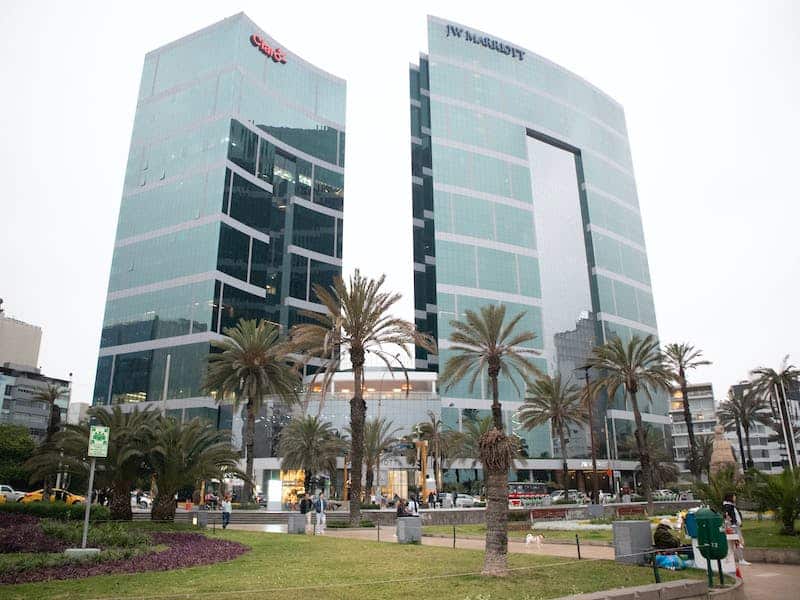With its unmatched luxury and impeccable service, Four Seasons Hotels and Resorts is one of the most prestigious hotel brands in the world.
This raises the question, is Four Seasons one of Marriott’s many hotel brands?
If you’re short on time, here’s a quick answer: No, the Four Seasons Hotels and Resorts operates as an independent company and is not owned or managed by Marriott International.
In this comprehensive guide, we’ll explore the relationship between these two hospitality giants in depth.
The History and Growth of Four Seasons and Marriott
The founding and expansion of Four Seasons worldwide
Four Seasons Hotels and Resorts was founded in 1960 by Isadore Sharp in Toronto, Canada.
It started as a modest motor hotel with just 125 rooms, but quickly gained a reputation for its exceptional service and luxurious accommodations. Sharp’s vision was to create a hotel brand that provided personalized experiences and catered to the needs of each individual guest.
Since its humble beginnings, Four Seasons has expanded rapidly and now operates more than 100 hotels and resorts in over 40 countries.
The brand has become synonymous with luxury and is known for its impeccable attention to detail, world-class amenities, and stunning locations. Whether it’s a beachfront resort in Bali or a city center hotel in New York, Four Seasons continues to set the standard for luxury hospitality worldwide.
One of the key factors contributing to Four Seasons’ success is its commitment to maintaining a strong corporate culture.
The company places a strong emphasis on employee training and empowerment, ensuring that each staff member embodies the brand’s values of exceptional service and genuine care for guests. This dedication to excellence has earned Four Seasons numerous accolades and a loyal base of repeat customers.

Marriott’s development from root beer stand to global hotel chain
Marriott International traces its roots back to 1927 when J. Willard Marriott and his wife Alice opened a nine-seat root beer stand in Washington, D.C.
Over the years, the company gradually expanded its business, opening a series of restaurants and motor lodges. In 1957, Marriott opened its first hotel in Arlington, Virginia, marking its entry into the hospitality industry.
Today, Marriott is one of the largest hotel chains in the world, with more than 7,000 properties across 131 countries. The company operates a diverse portfolio of brands, ranging from luxury to budget-friendly options, including names like Ritz-Carlton, JW Marriott, Sheraton, and Courtyard by Marriott.
Marriott’s success can be attributed to its commitment to innovation and adaptability. The company has consistently embraced new technologies and trends, such as online booking platforms and mobile check-in, to enhance the guest experience.
Marriott also places a strong emphasis on sustainability and social responsibility, implementing initiatives to reduce its environmental footprint and support local communities.
In 2016, Marriott completed its acquisition of Starwood Hotels & Resorts, which included the renowned St. Regis, W Hotels, and Westin brands. This merger further solidified Marriott’s position as a global hospitality powerhouse and expanded its reach into new markets.
While Four Seasons and Marriott are separate hotel brands, both have achieved remarkable success and have played significant roles in shaping the luxury hospitality industry. Each brand has its unique identity and sets its own standards for excellence, attracting discerning travelers from around the world.
Why Four Seasons Is Not Part of Marriott
Despite being two well-known and respected names in the hospitality industry, Four Seasons Hotels and Resorts is not part of Marriott International. There are several reasons why these two brands remain separate entities.
Different target markets and brand positioning
Four Seasons and Marriott cater to different target markets and have distinct brand positioning.
Four Seasons is renowned for its luxury offerings and personalized service, targeting high-end clientele who value exclusivity and exceptional experiences. On the other hand, Marriott appeals to a wider range of travelers, offering a variety of brands that cater to different budget levels and travel preferences.
This differentiation in target markets and brand positioning allows both companies to maintain their unique identities and serve their respective customer bases effectively.

Separate company ownership and management
Four Seasons Hotels and Resorts operates as an independent company and is not owned or managed by Marriott International.
Four Seasons maintains its own ownership structure, with the bulk of the company held by Cascade Investment, a private investment firm. This independence allows Four Seasons to make strategic decisions and maintain its distinct identity in the hospitality industry.
Marriott International, on the other hand, is a global hospitality company that owns and manages a diverse portfolio of brands, including Marriott Hotels, Sheraton, Westin, and many others. While Marriott has grown through acquisitions over the years, Four Seasons has remained a separate entity outside of their portfolio.
It’s important to note that while Four Seasons is not part of Marriott, both brands have their unique strengths and offerings. Whether it’s the unparalleled luxury and personalized service of Four Seasons or the wide range of options and loyalty benefits offered by Marriott, travelers have a variety of choices to suit their preferences and needs.
For more information on Four Seasons Hotels and Resorts, you can visit their official website. And for more information on Marriott International and its portfolio of brands, you can visit their official website.
The Limited Partnerships Between Four Seasons and Marriott
Four Seasons Hotels and Resorts, a luxury hotel brand known for its impeccable service and elegant accommodations, has formed limited partnerships with Marriott International, one of the largest hotel chains in the world.
These partnerships have allowed both companies to leverage their respective strengths and provide enhanced offerings to their customers.
Co-branded properties and franchise agreements
As part of their limited partnerships, Four Seasons and Marriott have entered into co-branded property agreements and franchise agreements.
This means that some Four Seasons properties are now operated under the Marriott brand, while still maintaining the high standards and unique experiences that Four Seasons is known for. This collaboration allows the two companies to tap into each other’s customer base and expand their reach in the global hospitality market.
One example of this partnership is the Four Seasons Hotel London at Ten Trinity Square, which is operated under the Four Seasons brand but is also part of the Marriott portfolio. This unique arrangement allows guests to enjoy the exceptional service and luxury amenities of Four Seasons, while also benefiting from Marriott’s extensive loyalty program.
Reciprocal benefits through loyalty programs
Another aspect of the limited partnerships between Four Seasons and Marriott is the reciprocal benefits offered through their loyalty programs.
Marriott Bonvoy members can earn and redeem points at select Four Seasons properties, while Four Seasons’ loyalty program members can enjoy certain privileges at Marriott hotels. This collaboration enhances the value proposition for loyal customers of both brands, providing them with more options and rewards.
For example, Marriott Bonvoy members can use their points to book a stay at the luxurious Four Seasons Resort Bali at Sayan, gaining access to exclusive perks and experiences. Similarly, Four Seasons’ loyalty program members can enjoy elite status benefits, such as room upgrades and late check-out, when staying at Marriott properties.
Occasional collaboration on hotel projects
In addition to co-branded properties and reciprocal benefits, Four Seasons and Marriott occasionally collaborate on hotel projects.
This collaboration allows them to combine their expertise and resources to create exceptional hospitality experiences in new and existing markets.
For example, Four Seasons and Marriott partnered together to develop the Four Seasons Hotel Philadelphia at Comcast Center, which is located in the tallest skyscraper in the city. This collaboration brought together Four Seasons’ renowned service and Marriott’s global reach, resulting in a truly remarkable hotel that has garnered praise from guests and industry experts alike.

Comparing Four Seasons and Marriott
When it comes to luxury hotels, Four Seasons and Marriott are two well-known names in the industry. While both brands offer top-notch accommodations and services, there are some key differences between them.
Let’s take a closer look at how Four Seasons and Marriott compare in terms of brand size and global presence, guest experience and amenities, and business models and company culture.
Brand size and global presence
Four Seasons is a smaller brand compared to Marriott in terms of the number of properties it operates. As of 2021, Four Seasons has around 121 properties worldwide, while Marriott boasts over 7,600 properties across its various brands, such as Marriott Hotels, Sheraton, and Westin.
Marriott’s extensive global presence allows travelers to find a Marriott hotel in almost any destination they visit, making it a convenient choice for frequent travelers.
Guest experience and amenities
Both Four Seasons and Marriott strive to provide exceptional guest experiences, but their approach may differ.
Four Seasons is known for its personalized service and attention to detail. From welcome gifts to customized itineraries, Four Seasons aims to create a unique and memorable experience for each guest.
On the other hand, Marriott offers a wide range of amenities and services, catering to different types of travelers. Whether you’re a business traveler looking for conference facilities or a family on vacation seeking kid-friendly amenities, Marriott has options to suit your needs.
Business models and company culture
The business models and company culture of Four Seasons and Marriott also differ.
Four Seasons operates as a management company, meaning that it manages and operates hotels on behalf of individual owners. This allows Four Seasons to maintain a high level of control over the guest experience and ensures consistency across its properties.
Marriott, on the other hand, has a franchise model, where individual hotel owners pay to use the Marriott brand name and benefit from its marketing and reservation systems. This model allows Marriott to expand rapidly and offer a wide range of brands and price points to cater to different market segments.
Both Four Seasons and Marriott have their unique strengths and offerings. Whether you prefer the intimate and personalized experience of Four Seasons or the extensive global presence and variety of amenities offered by Marriott, both brands are dedicated to providing exceptional hospitality to their guests.
Conclusion
While Four Seasons and Marriott engage in some strategic partnerships, they operate as completely separate, competing entities.
With distinct brand identities and business strategies tailored to different segments of the luxury hotel market, Four Seasons clearly stands apart from Marriott’s extensive portfolio.
Understanding their limited relationship enables travelers to choose the premium or mainstream hotel brand that best suits their needs.






